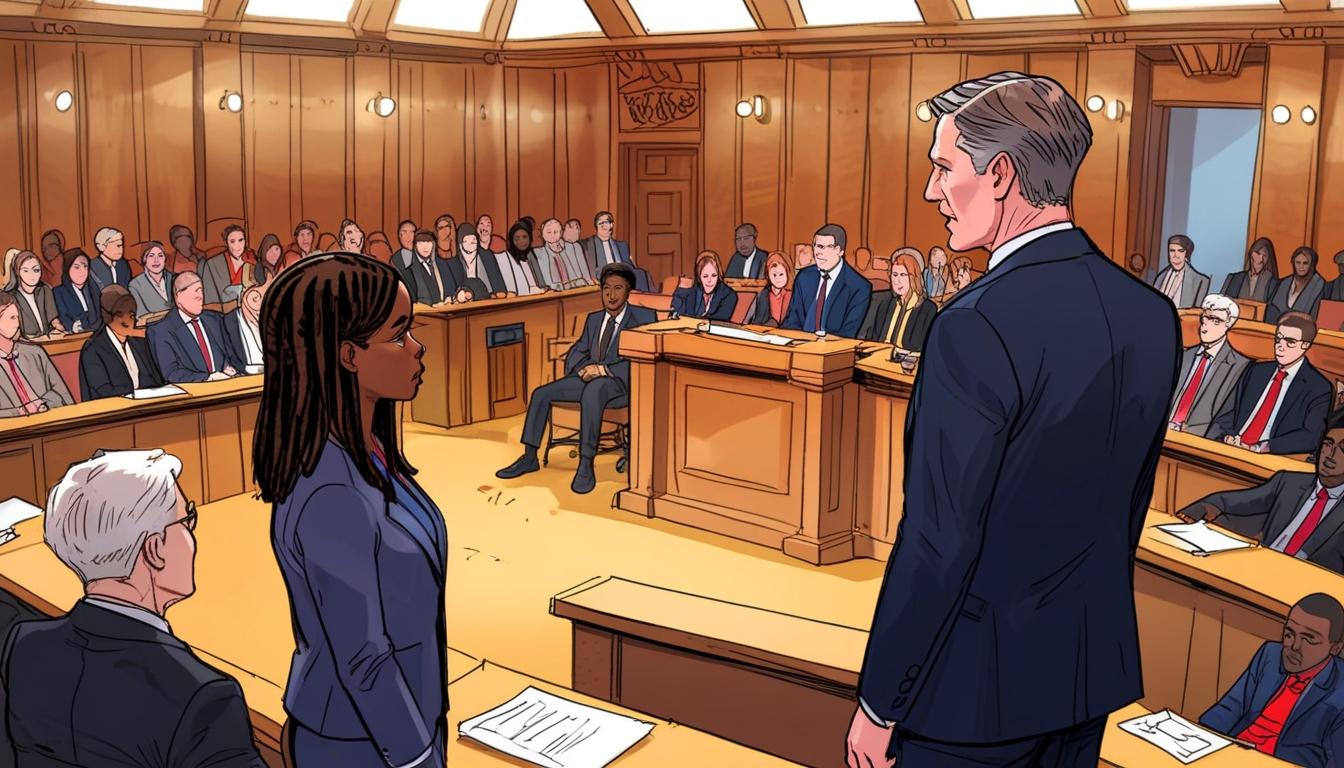Kemi Badenoch, a prominent Conservative leader, has publicly accused the current government of failing to honour its commitment to establish five local inquiries into grooming gangs, a pledge initially made to address the widespread issue of child sexual exploitation across various parts of the UK. This accusation came during a heated session of Prime Minister’s Questions, where Badenoch highlighted that only one inquiry, based in Oldham, has been initiated despite promises of more. She suggested that Sir Keir Starmer, leader of the Labour Party and Prime Minister, was deliberately "dragging his heels" on these investigations to avoid exposing potential scandals within Labour-run councils.
Badenoch's remarks came against the backdrop of a growing demand for transparency on which areas are conducting inquiries into grooming gangs, alongside a separate, three-month national audit of evidence led by government troubleshooter Baroness Louise Casey. The Conservative leader also linked the inquiry delays to the upcoming local elections, suggesting that voters face a choice between "chaos and cover-ups under Labour councils or better services under the Conservatives."
During the parliamentary exchange, Badenoch pressed Sir Keir for details on the status of the other local inquiries, but when no substantive response was given, she stated, "He cannot name a single place because nothing is happening." She went on to question whether the lack of progress was due to local authorities’ reluctance to investigate themselves and emphasised the limitations of local inquiries, noting they "cannot force witnesses to appear" or compel people to give evidence under oath, thus advocating for a national inquiry.
Sir Keir Starmer responded by highlighting his previous role as Director of Public Prosecutions, where he led the first prosecution of a grooming gang, claiming he had transformed the approach to such cases. He criticised Badenoch for remaining silent on the issue during the Conservative government's tenure and asserted that Labour was prioritising "delivering truth and justice" for victims. Starmer pointed to Labour’s efforts to implement recommendations from the 2022 national inquiry into child sexual abuse and support local inquiries that would provide accountability and tangible changes at the community level.
The controversy over grooming gangs has a long-standing history in the UK, with numerous cases over the past decade involving predominantly men of Pakistani descent convicted of sexually exploiting mainly white girls. The 2022 national inquiry, led by Professor Alexis Jay, reported on a broad spectrum of child sexual abuse, including cases linked to grooming gangs, churches, and schools. Calls for a second national inquiry have intensified, particularly following public attention brought by tech billionaire Elon Musk at the start of the year. This call has gained support across political lines, including from some Labour figures such as Rotherham MP Sarah Champion and Greater Manchester Mayor Andy Burnham.
However, not all Labour officials agree with the call for additional inquiries. Tracy Brabin, Labour Mayor of West Yorkshire, has rejected calls for a local inquiry in her area, emphasising that victims "want justice" rather than further discussions. "This is not a political football; it's actually people's lives that we should put front and centre," she stated.
Other political parties have also weighed in on the issue. The Liberal Democrats have urged the government to focus on implementing all 20 recommendations from the Jay inquiry, with party spokesperson Lisa Smart stating that MPs "owe it to" victims to go beyond mere words and "deliver justice and bring offenders to account." Meanwhile, Reform UK has supported calls for a national inquiry and previously offered to fund it independently. Their leader, Nigel Farage, has accused both major political parties of "failing to bring justice to the thousands of victims across multiple decades of these horrific crimes."
The BBC is reporting that the issue of grooming gang inquiries remains highly contentious and politically charged, with ongoing debates about the best way to achieve justice for victims amidst concerns over political interference and local government accountability. The recent exchanges in Parliament reflect the deep divisions and urgent demands for progress on this complex social issue.
Source: Noah Wire Services
